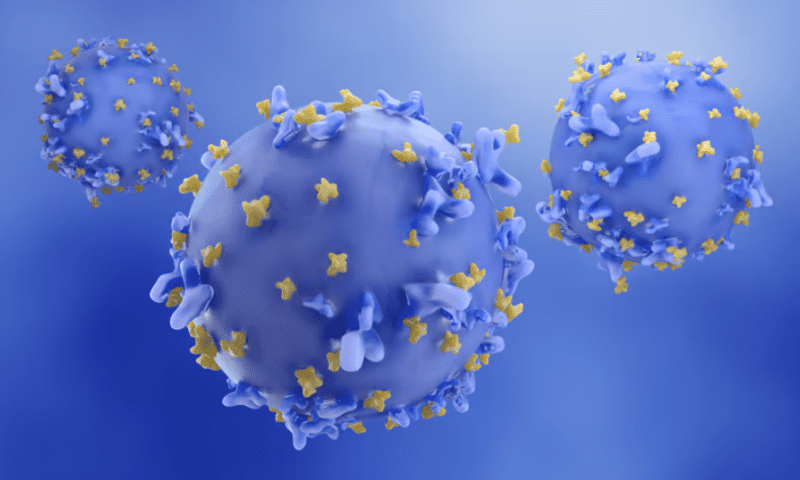Allogeneic or “off-the-shelf” chimeric antigen receptor T-cell (CAR-T) therapy, a type of cancer immunotherapy created from donor T cells, has been heralded as the future of oncology. But a formidable foe stands in the way: the patients’ immune system, which can release antibodies that bind to the donor cells and cause the body to reject them.
Now, scientists from the University of California, San Francisco (UCSF) have potentially found a way to trick the immune system into leaving allogeneic CAR-T cells alone. In a paper published Jan. 2 in Nature Biotechnology, they described the addition of “decoy” receptors on CAR-T cells, which the antibodies preferentially bound to over other receptors on the cell. The addition of the decoy receptor kept the immune system from destroying the donor cells in mice.
“This antibody-mediated rejection is really hard to overcome,” said Tobias Deuse, M.D., a cardiac transplant surgeon and chair of cardiac surgery at UCSF who was senior author on the study, in a press release. “So, rather than trying to suppress the patient’s immune system, we looked for ways we can alter the cells that the patient will receive and better enable them to survive.”
Antibody-mediated destruction of donor CAR-T cells works just like transplanted organ rejection, but CAR-Ts are especially vulnerable because they are more exposed to the immune system; they float freely in the bloodstream rather than being protected within an organ. Both patients who receive organ transplants and those who receive CAR-T cells take drugs to prevent the immune system from creating antibodies to them, but the drugs don’t work as well in the case of CAR-Ts, the researchers noted in the study.
To get around that problem, the scientists engineered CAR-T cells to over-express a receptor called CD64. Through a series of experiments in cell culture and in mice, they found that when the immune system generated antibodies against the cells, they bound tightly to the CD64 receptor. These antibodies would otherwise mark the cells for destruction by the immune system, but “capturing” them with the CD64 receptor disrupted the process and completely protected them.
The method appears to work for other cell types, too. In autoimmune conditions that affect the thyroid and the pancreas—such as hypothyroidism and Type 1 diabetes—thyroid cells and insulin-producing beta islet cells are attacked by host immune cells. To see whether over-expressing CD64 could protect these cells as well, the researchers transplanted them into separate groups of mice for each type, followed by anti-thyroid or anti-beta islet cell antibodies. In both cases, the cells that had been engineered to over-express CD64 survived, while those that had not been engineered were destroyed.
While the study serves as proof-of-concept, the CAR-Ts used in the experiments weren’t designed to be used therapeutically, and the mouse models didn’t have cancer. More research will be needed before the strategy can be tested on therapeutic cells, the researchers said.
The researchers hope their work will lead to “universally usable allogeneic cells” that could make the therapies cheaper and more accessible, they said.
Approved CAR-T therapies, such as Novartis’ Kymriah, require modifying a patient’s own T cells to recognize and attack their cancer. One treatment course of Kymriah costs $475,000; hospitals may charge up to $2 million to cover the total cost of care, according to a 2021 report by Prime Therapeutics.

